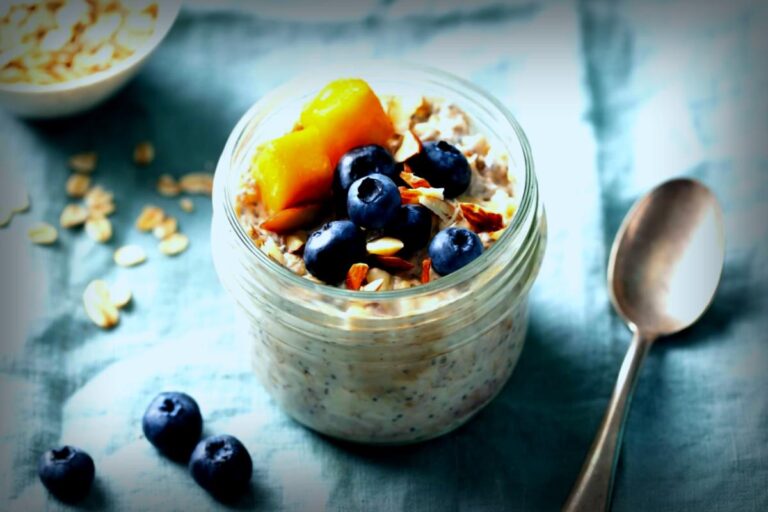Trying to control and cut down on stress? You’re definitely not alone in that. Stress management is a big deal, and it can involve a bunch of lifestyle changes like better sleep, trying to workout more, and also tinkering with your diet and nutrition. One effective approach is to eat a balanced diet filled with stress-busting foods that can help dial down cortisol levels. Here’s a look at which foods can help, as suggested by registered dietitians.
Understanding Cortisol’s Role in Your Body
Cortisol comes from the adrenal glands and is released into the bloodstream as a response to stress. It plays a huge role in managing everything from your immune response to your metabolism and how you handle inflammation. When you’re facing a challenging situation, cortisol is released as part of your body’s survival mechanism.
Over the last few years, there’s been a spike in interest in finding ways to lower cortisol. And guess what? Lowering cortisol can definitely help with stress reduction. But it’s also key to understand that high cortisol levels aren’t always bad. A little spike is a normal part of managing stress and is crucial for safety and coping.
Cortisol levels are not constant. They tend to rise in the morning and drop by night. Various things can throw them off, like dealing with stressful life events, not enough sleep, or specific medications.
There are some uncommon conditions related to cortisol levels, too. For example, Cushing’s syndrome leads to high amounts of cortisol, while Addison’s disease means not enough of it is produced. Chat with your healthcare provider if you’re worried about your cortisol levels.
How Your Diet Affects Cortisol Levels
It’s not just what you eat that messes with cortisol levels; things like stress events, medications, and lack of sleep all play their part.
Living a healthy lifestyle where you tackle stress through methods like regular exercise, sufficient quality sleep, and stress management is all good. While diet is a piece of the puzzle, it’s by no means the only one. Health research shows that sticking to a nutrient-rich diet goes a long way.
When it comes to stress management, it’s no surprise to hear that established healthy eating patterns can be beneficial, according to Tara Schmidt, M.Ed, RDN, a top dietitian at the Mayo Clinic Diet, who shared her advice with Flow Space.
Top Foods That Can Help Lower Cortisol
Current studies suggest that choosing wholesome, nutrient-packed foods plays a part in decreasing stress and inflammation, and can help with slowing down cortisol production. “Healthy dieting generally can shield you from stress and inflammation,” says Schmidt. Strive to have a diet rich in plants and nutrients, veering away from ultra-processed foods. We’re talking good fats, fiber, protein, as well as loads of fruits and veggies.
Your gut health is also on the menu! A well-functioning gut plays a pretty major role in how you respond to stress.
“The gut and brain keep talking through something called the gut-brain axis,” explains Lauren Manaker, MS, RDN, a dietitian-see and MegaFood associate. “A happy gut helps manage your stress levels, while an unhappy gut can trigger cortisol spikes.”
Schmidt advises integrating foods packed with polyphenols, fiber, healthy fats, and probiotics into your meals.
Here’s a quick list of foods that are great for cutting cortisol:
- Magnesium-filled foods: You might want to dig into magnesium-rich goodies like spinach, avocados, pumpkin seeds, and almonds since there’s research supporting their role in cutting down stress levels.
- Vitamin C: This powerhouse vitamin, known for reducing stress, pops up in fruits like oranges, strawberries, and bell peppers.
- Foods loaded with prebiotics: Foods that have non-digestible fibers fueling your good gut bacteria can help keep cortisol low. Items like garlic, onions, and bananas can be your allies here, confirms Manaker.
- Omega-3 fatty acids: Curb stress inflammation with foods such as salmon, walnuts, and flaxseeds.
- Fermented foods: Foods like kimchi, sauerkraut, and yogurt can lend a hand for good gut health.
- Whole grains: Indulge in meals involving brown rice, oatmeal, barley, bulgur, and farro – loaded with fiber and polyphenols that research shows contribute to stress relief and gut health.
Foods to Avoid That Raise Cortisol
Not everything is good for cortisol levels; some foods can kick them up.
Foods loaded with sugar and high-level refined carbs, like fast food, sugary snacks, and chips, can wreak havoc, according to Manaker.
Keeping an eye out for sugary processed snacks is wise, especially ones without fat, fiber, or protein, as they can lead to sudden glucose spikes and falls, which might trigger surviving cortisol responses, adds Schmidt.
Sipping too much alcohol can also bump cortisol. Additionally, if coffee raises your tension levels or you’re pounding back caffeine to cope, consider cutting back or opting for green tea, which is more relaxed on caffeine compared to black tea and coffee.



















